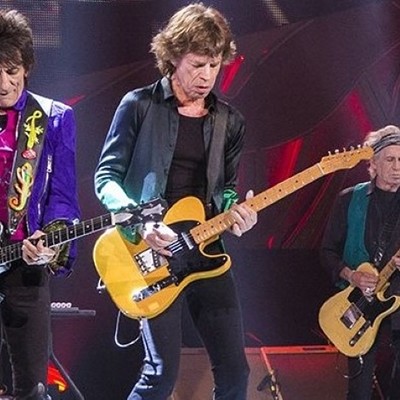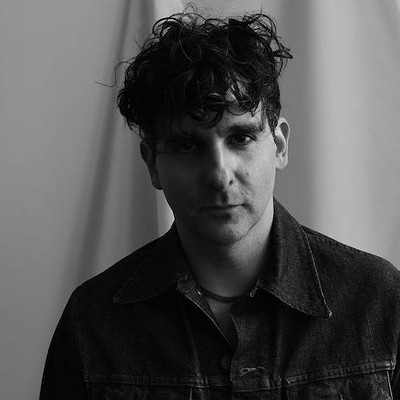"For a black male, the sound of the blues is pre-Civil Rights. It's oppression. In high school I had a friend who asked me why I played the blues, that black people don't play blues."
Blues was once a very popular and influential musical genre. Its artists were a common sight at local venues like Third Ward's legendary El Dorado Ballroom, as well as in other Houston-area African-American neighborhoods like Sunnyside, Fifth Ward and beyond, where Johnny Taylor, Joe Tex, Bobby Blue Bland and countless others would play to mostly black audiences on a nightly basis.
But nowadays this music is all but completely absent in these African-American communities, and blues gigs are rare, novel events. Black folks have seemingly abandoned the blues at the street level and even in a commercial sense. Young African-Americans no longer make up the audiences at blues venues around town. In most places in the U.S., including Houston, the audience of the blues is primarily constituted of non-African Americans.
The question is: Why? What has happened to the blues in the African-American community?
First and foremost, blues music is an art form capturing the pain of the black experience in America. A response to the endurance of of a lifetime of suffering, working endless physical labor in the worst conditions imaginable and, at the end of the day, not being treated remotely equal compared to the American population at large.
The blues arose out of the long transition out of slavery in the United States, and responded to the needs of a people in a particular socioeconomic situation; namely, that of being poor, hungry and destitute. It's a political-protest genre that allows for the release of tension in a socially acceptable manner, and the cathartic expression of tensions created by socially intolerable living conditions, heartbreak and economic deprivation.
Once, blues artists needed this opportunity for release to feel functional in society, and audiences in African-American communities desperately needed this release as well. People who sang the blues not only heard the blues, they actually felt bluesy. The person who sang the blues and actually felt the blues was able to return to society and deal with the impossible odds crushing his or her quality of life and dramatically shortening lifespans.
In recent decades, though, there has been a change in perception. The forefathers of today's younger generations would do anything they could do to move one small step forward in society, whether making money or acquiring an education. That sense of urgency against impossible odds has been misplaced, forgotten or lost.
Unemployment in the African-American community is still very high, only now there is a lack of a sense of urgency to achieve. Starving to death is as a factor in this loss of urgency, as hunger is a serious motivation to strive. There is little real hunger driving young African-Americans, or anyone else in America, to roll up his or her sleeves and literally work an ugly, grueling job simply to put food on the table.
Instead, the United States as a whole is fed so well, it's fat. When you are starving, you'll do anything to survive. Young African-American people 50 years ago were very aware of how bad life was for them. They saw the cloud of doom hanging closely overhead with little chance of a healthy, happy future unless they seized any opportunity to climb out of their dismal situation presented itself.
What it boils down to is the perception of the circumstances. Younger generations of African-Americans do not have the same awareness of urgency for socioeconomic achievement as in previous generations. Despite numbers showing African-Americans at the bottom of social achievement, those in the black community, especially the youth, no longer feel they are at the bottom. They no longer feel as oppressed as the people who came before them, even though the numbers show they are in the same situation or worse off than previous generations.
Story continues on the next page.
Maybe luxuries such as having a $100/month cell phone is a glimpse of the smoke-and-mirrors illusion that allows younger generations of black people to forget the societal place they hold. The youth in the African-American community no longer feel deprived and in pain to the point where they need to yell, shout and moan about it.
The way we in the black community use music to express defiance today is more self-harming than not. Now popular music caters to whims and wants, not the needs of survival. It celebrates extremes in hypersexuality, misogyny, male-dominated perspectives, drug abuse, unnecessary material possessions and so forth. In this way, the element of defiance is backfiring on young African-Americans who embrace these ideas in current black pop music.
Despite its disappearance from African-American communities, remnants of the blues have been appropriated into many other forms of music, from gospel and funk to soul and R&B to hip-hop and jazz. Blues was not let go as an art and dance because African-American culture always wants something fresh and new or because another culture has appropriated the genre.
This past year Justin Timberlake was awarded a Grammy for Best R&B Song, and Macklemore was given multiple Grammys for Best Rap Album, Best Rap Song and Best Rap Performance. But African-Americans are not going to stop singing R&B or rapping because other people outside their race and culture are the most embraced by society at large.
All is not lost, yet. There are a few notable young African-Americans carrying the heavy torch called blues, such as Houston's Annika Chambers and Austin's Gary Clark Jr. There are places to still hear live blues a few days a week in some local African-American communities, such as the Silver Slipper in Fifth Ward, but you will not find a young audience or youthful performers inside those walls.
For African-Americans, blues is mostly a dead art. Long live the blues.
This is Kerry Melonson's first article for Rocks Off. Special thanks to Jordan Donald, BIG SIN and Professor Ron Samples.
ROCKS OFF'S GREATEST HITS
The Ask Willie D Archives Houston's Top 10 Hipster Bars, Clubs & Icehouses 2014 Today's 10 Most Promising Young Metal Bands Hip-Hop's Seven Best Breakup Songs Houston's Top 10 Rooftop Bars and Lounges
Follow @hprocksoff





